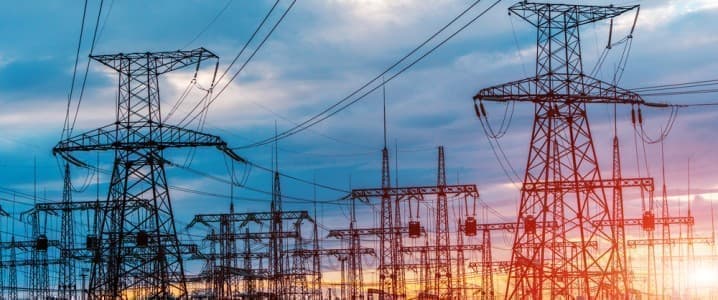Authored by Todd Snitchler via RealClearEnergy,
At meetings of energy regulators, policymakers, consumer advocates, and industry this summer, the content and tone of the conversations around electric system reliability have changed dramatically. Executives from across the industry all agree that dispatchable generation is needed now and will be needed for many years to come.
Most prominently, the realization and willingness to say publicly that dispatchable resources like natural gas-fired generation will be needed as the energy expansion continues and load growth accelerates for the first time in decades is a welcome admission.
For several years the discussion around the future of the electrical grid was about how inexpensive it will be and how “out of political favor” resources would be moved off the grid in favor of politically favored ones without creating any disruptions or reliability challenges. And just like that, the story has changed – dramatically. Why?
First, load growth – and a substantial amount of it is expected in the short term. The second is the pace of dispatchable generation retirements, without replacement generation with similar performance characteristics. The third is consistent and increasing warnings coming from reliability organizations and grid operators that a crisis is coming and coming quickly if system planning does not improve.
What does this mean? In short, it is a long-awaited recognition of the reality of grid operations combined with the acknowledgment (albeit grudgingly in some circles) that dispatchable resources, like natural gas, will need to be retained and operated for a longer time horizon than many were willing to admit. This recognition matches the significant number of credible studies, including work done by McKinsey and EFI, that all said dispatchable natural gas generation would be needed even in a high renewable resource penetration scenario.
As the reality of load growth, supply chain issues, permitting, siting, and construction challenges impacting all types of resources settled in and the sharp warnings of imminent reliability issues combined, it became clear that the rhetoric was far ahead of reality. Recognizing the problem is the first step in solving it.
Because all resources are now accountable for reliability, including dispatchable, intermittent, and storage resources, the requirement to acknowledge and adapt to grid realities is no longer optional – it’s mission critical. The retirement of significant amounts of dispatchable resources without adequate replacements has pushed us ever closer to a system with zero margin of error.
To correct this situation, policymakers and regulators should take steps to minimize the risk to customers. First, the timing gap between retirements and additions to the system must be addressed; we can’t let existing resources off the grid before the replacements are ready. The process for connecting new generation to the grid must be reformed to ensure projects match system needs, not just policy pronouncements. Permitting and siting reforms are needed so we can deliver development of all types of energy projects.
Second, policymakers must temper enthusiasm and set goals that align with the reality of system needs and operational constraints. This could mean pausing policies that hinder the deployment of needed resources or including offramps in legislation to ensure grid reliability.
Third, grid operators must move more quickly to adjust markets to send the appropriate signals that will drive investment of the required resources. States must recognize the broader benefits of market participation and positive outcomes for their constituents and stop merely demanding grid operators do what one state wants to the detriment of another. States must again appreciate that the benefits of their utilities joining markets far outweigh their ability to dictate resources and timelines and then disclaim responsibility for the issues those decisions create.
To close, lest anyone accuse market participants of not wanting to reduce emissions or only wanting to profit from their current resources, this reality check in no way means walking away from striving to meet policy goals. Bottom line – we can set goals, but they must be tethered to operational reality to ensure success and reliability are both achieved.
ADVERTISEMENT
Todd Snitchler is President and CEO of the Electric Power Supply Association (EPSA)
By Zerohedge.com
More Top Reads From Oilprice.com
- Critical Minerals: The New Battleground for Economic Supremacy
- Russia's Nuclear Ambitions in Central Asia
- Falling Chinese Steel Prices Send Ripples Through Global Markets

















